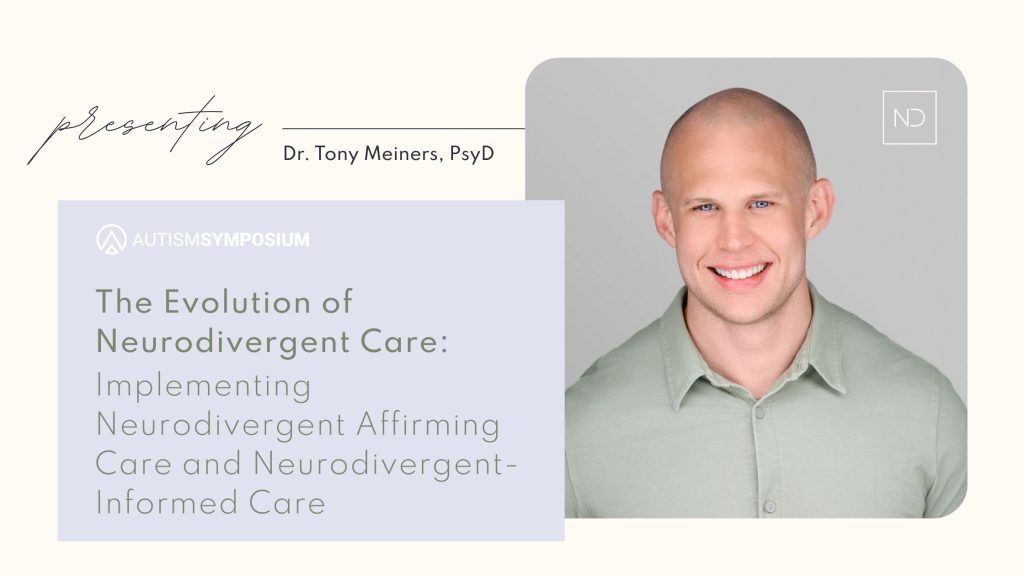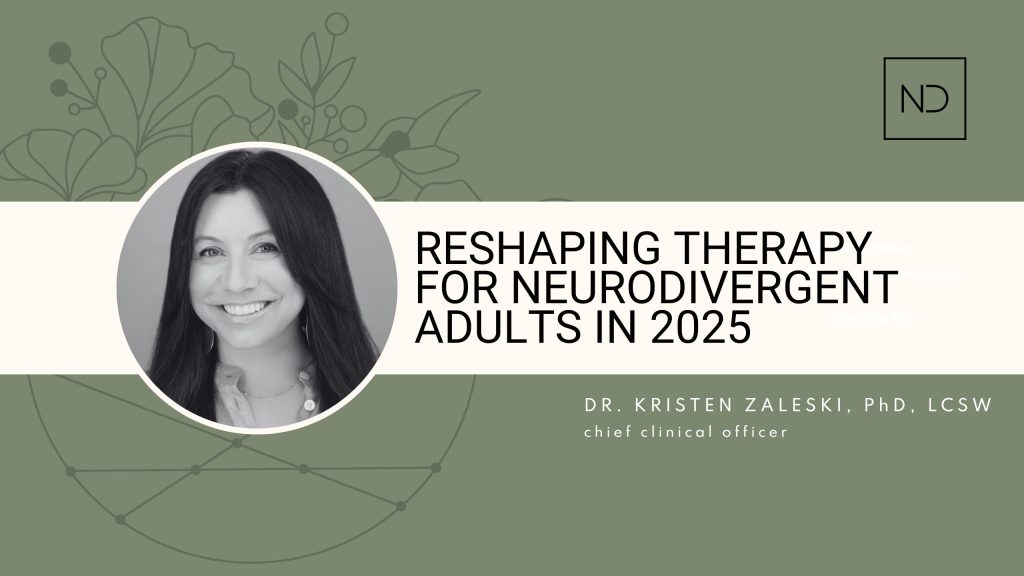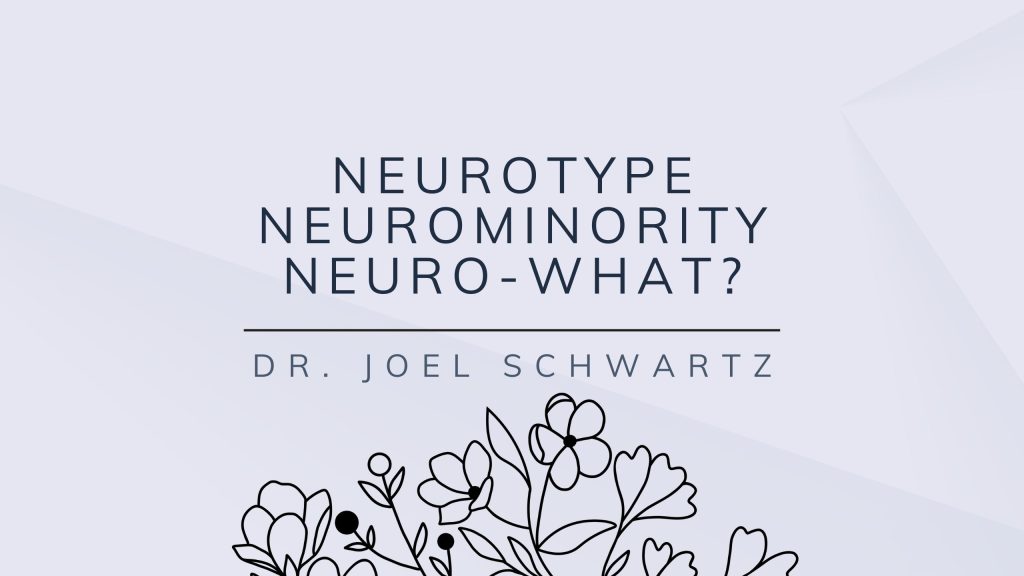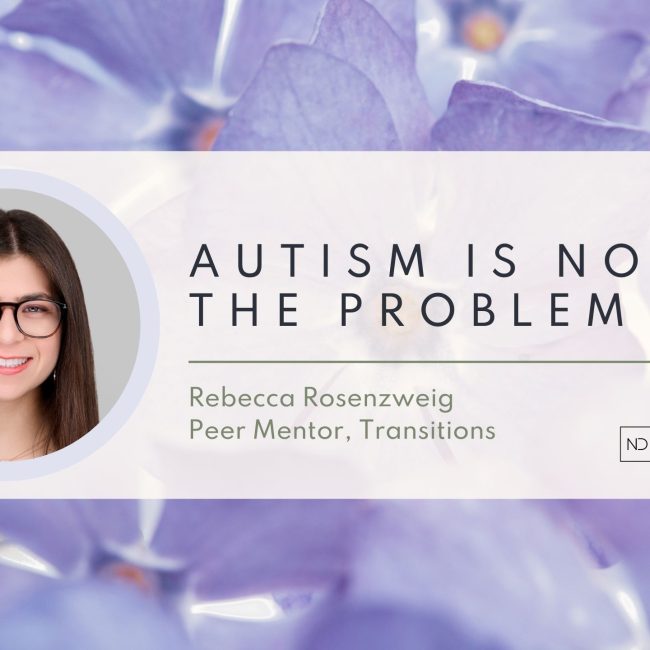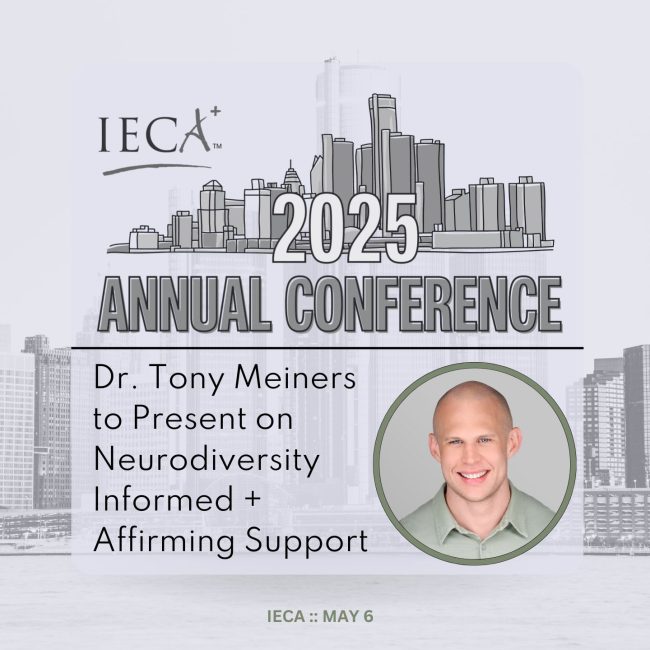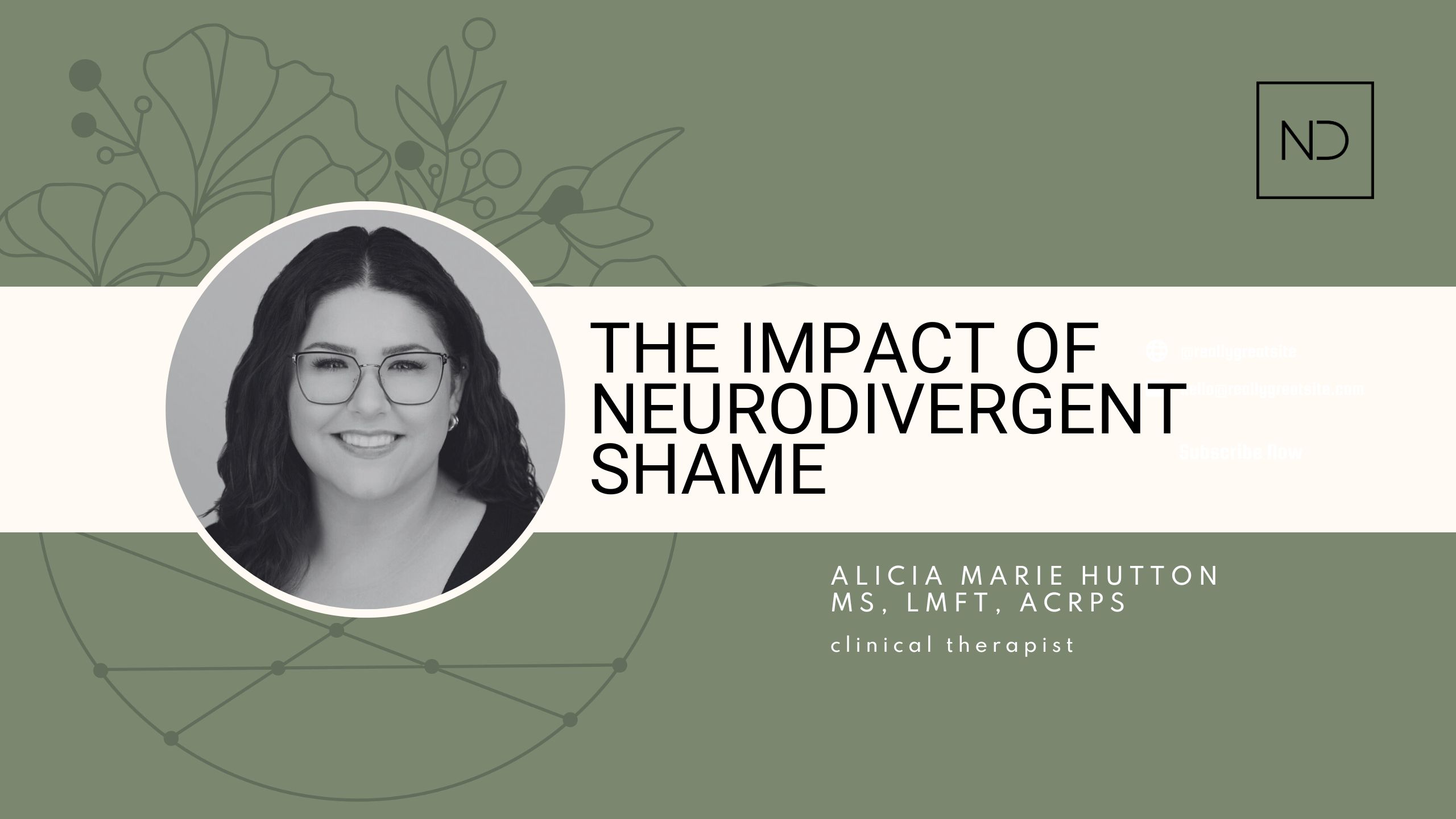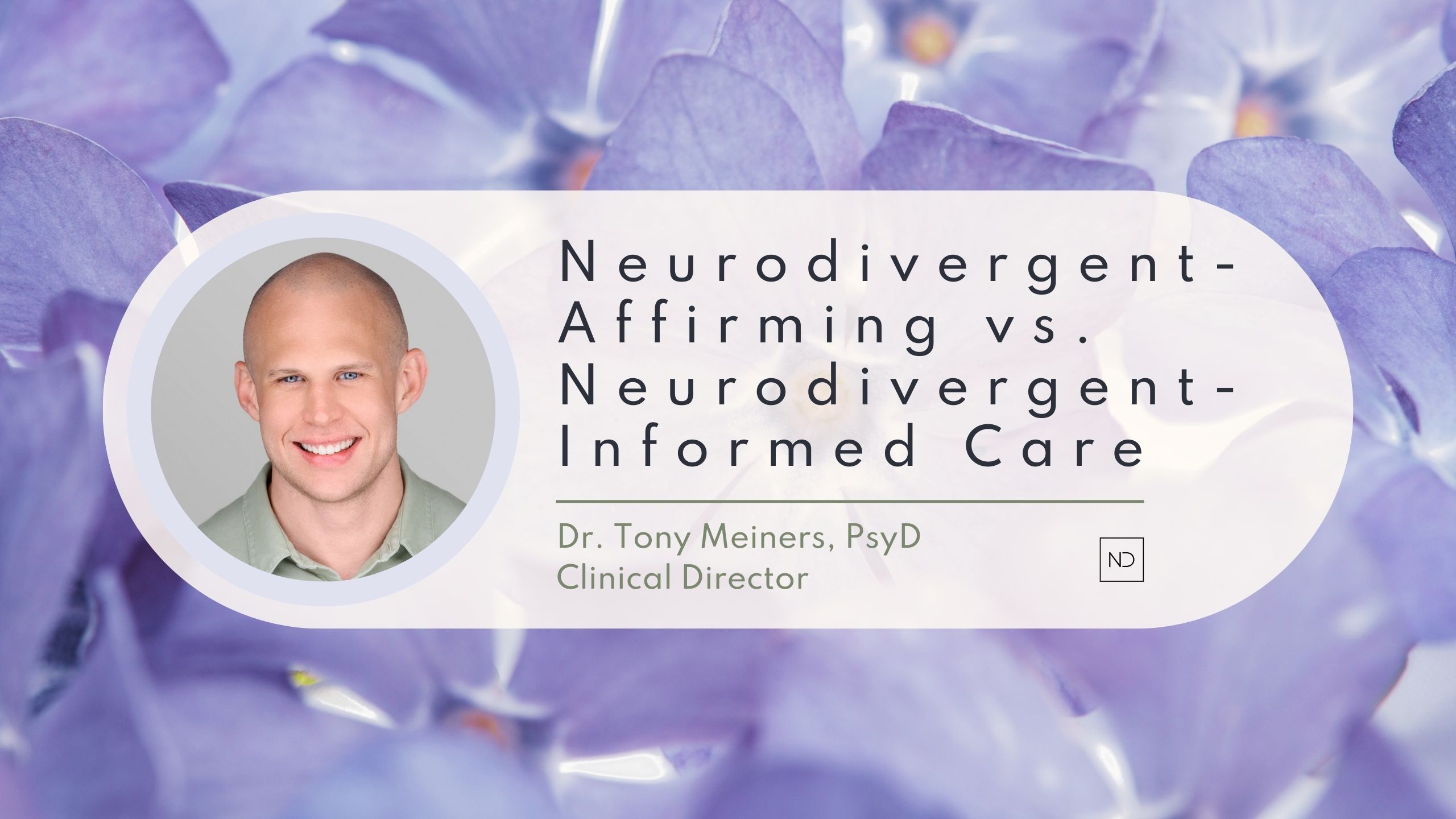
Neurodivergent-Affirming vs. Neurodivergent-Informed Care
Written by: Dr. Tony Meiners, PsyD :: The Neurodivergent Collective’s Clinical Director
Neurodivergent care is evolving, and with it comes the need to differentiate between two essential but distinct approaches: neurodivergent-affirming care and neurodivergent-informed care. While both are critical, they serve different purposes. The most effective support integrates elements of both. Understanding their similarities, differences, and areas of complementarity can help clinicians, educators, and caregivers provide meaningful, effective, and respectful support to neurodivergent individuals.
NEURODIVERGENT-AFFIRMING CARE
Neurodivergent-affirming care recognizes that neurodivergence is a natural variation of human experience rather than a disorder that needs to be fixed. It prioritizes validating an individual’s identity and lived experience while advocating for accommodations that support their well-being. Some core principles of neurodivergent-affirming care are:
- Strengths-Based: Focuses on the individual’s abilities rather than deficits.
- Identity Validation: Encourages self-acceptance and challenges stigma.
- Non-Pathologizing: Recognizes differences as neutral rather than inherently problematic.
- Autonomy-Focused: Prioritizes self-determination and informed choice.
- Trauma-Informed: Acknowledges the impact of marginalization and systemic barriers.
Rather than pressuring a client to conform to neurotypical social norms, an affirming therapist helps them embrace their natural communication style, such as scripting or info-dumping, and educates others about these valid forms of interaction.
NEURODIVERGENT_INFORMED CARE
Neurodivergent-informed care, on the other hand, takes an approach leading with neuroscience, developmental psychology, and real-world skill-building to support an individual’s growth. It recognizes that while identity affirmation is crucial, individuals often need practical strategies to navigate a world not designed for them.
- Rooted in Neuroscience: Uses research on executive function, sensory processing, and emotional regulation to guide intervention.
- Functionality-Oriented: Helps individuals develop practical skills to improve quality of life.
- Scaffolding Support: Provides structured interventions that build independence over time.
- Environmental Adaptations: Focuses on modifying systems (e.g., workplaces, schools) rather than forcing individuals to conform.
- Balance Between Comfort and Growth: Encourages skill development while respecting personal limits.
Instead of simply affirming a client’s executive dysfunction, an informed therapist helps them implement external supports like visual schedules, timers, and structured routines to manage daily tasks effectively.
Why do both of these matter, and why should they be combined?
While affirming care fosters self-acceptance, informed care ensures that individuals develop the skills they need to function in daily life. When one approach is emphasized over the other, challenges arise:
- Too Much Affirmation Without Practical Support: Risks enabling learned helplessness or preventing meaningful skill development.
- Too Much Focus on Functioning Without Affirmation: Can lead to masking, shame, and burnout.
Neurodivergent care should not be about choosing between affirming or informed approaches—it’s about integrating both. The goal is to foster environments where neurodivergent individuals feel safe, understood, and empowered to grow in ways that align with their own needs and aspirations. By grounding interventions in neurobiology, developmental research, and lived experiences, clinicians and caregivers can create a truly affirming and effective framework for support. Neurodivergent individuals deserve care that both respects their unique wiring and provides the tools they need to navigate the world with confidence.
APRIL 8th THE AUTISM SYMPOSIUM 2025 WILL FEATURE
“The Evolution of Neurodivergent Care: Implementing Neurodivergent Affirming Care and Neurodivergent-Informed Care”
Do you have a question?
Send us a message


